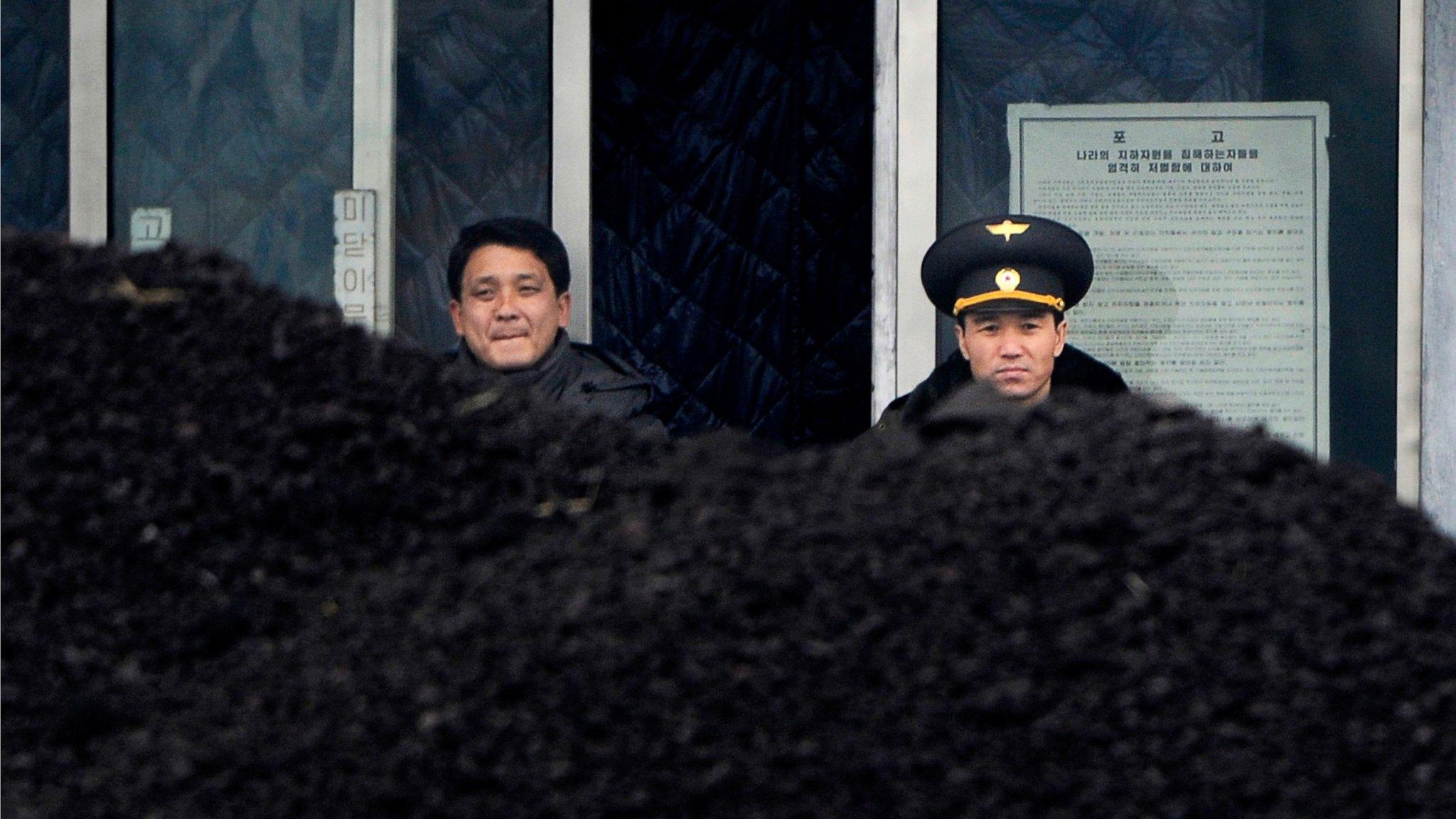North Korea crisis: North in another 'failed' missile launch
- Published
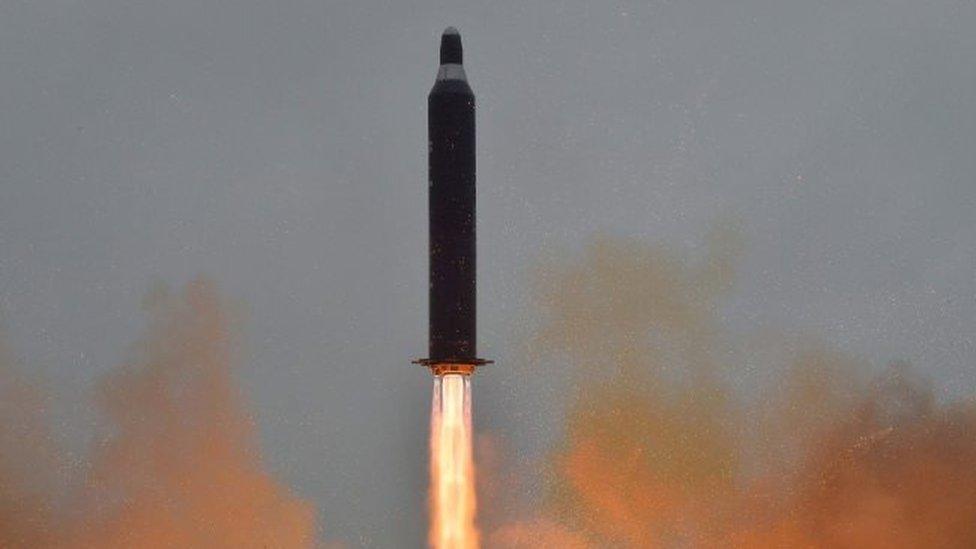
There have been a number of missile tests by North Korea (file photo)
North Korea has test-fired another ballistic missile, South Korean and US military officials say.
The missile exploded shortly after take-off, they said - the second failed launch in the past fortnight.
US President Donald Trump accused North Korea of showing "disrespect" towards China and its president.
The missile was fired from a site in South Pyeongan province, north of Pyongyang, in the early hours of Saturday local time, South Korea said.
It came just hours after the United Nations Security Council discussed North Korea's missile programme.
Mr Trump tweeted, external: "North Korea disrespected the wishes of China & its highly respected President when it launched, though unsuccessfully, a missile today. Bad!"
Mr Trump recently hosted Chinese President Xi Jinping and praised him for "trying very hard" on North Korea.
Tensions in the region have increased lately, with both North and South Korea conducting military exercises.
North Korea is believed to be continuing efforts to miniaturise nuclear warheads and fit them on long-range missiles capable of reaching the US.
It is not known what kind of missile was unsuccessfully launched on Saturday, however, one official told Reuters it was probably a medium-range missile known as a KN-17.
The land-based, anti-ship ballistic missile has already had two failures, but its message is that US, South Korean and Japanese ships should beware.
Meanwhile, an American aircraft carrier - the USS Carl Vinson - has reportedly arrived in the region after it was sent to the Korean peninsula as part of Mr Trump's "armada".
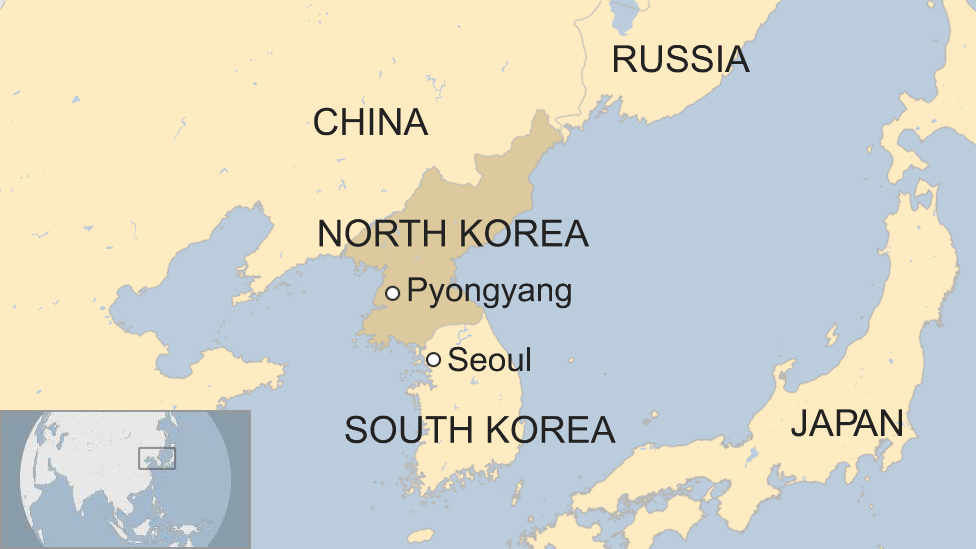
The South Korean Joint Chiefs of Staff (JSC) said in a statement that the "unidentified missile" was fired "from a site in the vicinity of Bukchang in Pyeongannam-do (South Pyeongan Province)" early on Saturday.
Commander Dave Benham, a spokesman for US Pacific Command, also said the launch had occurred near the Bukchang airfield.
He added that the missile did not leave North Korean territory.
After Saturday's failed launch, the Japanese government condemned the test and said it had lodged a strong protest with North Korea through its diplomatic channels.

Are the missile failures unusual?
North Korea has had two failed missile launches this month - but that does not mean they will always fail, an expert has said.
Jeffrey Lewis, a scholar at Middlebury Institute of International Studies at Monterey, told the BBC this was to be expected when testing a new missile as there was such a variety of things which could go wrong.
"Every time you have a new missile there are going to be growing pains," he said. "There is nothing unusual if it is new missiles.
"It will fail until it doesn't.
"In fact, the [American] rocket which put Alan Shepard [the first US man] in space was known as 'Old Reliable', but it failed nine out of 10 of its first tests."
Data collected by his institute also suggested North Korea's old missiles "work just fine", he added.
Mr Lewis also rejected suggestions a US cyber attack might have been behind the recent failures, pointing to successful launches in Iran.
"If they are hacking the North Koreans, they would be hacking the Iranians," he noted.
Kim Jong-un this week inspected an intense display of military firepower
The US has threatened to use military force in North Korea if necessary.
On Friday, US Secretary of State Rex Tillerson accused UN Security Council members of not fully enforcing existing sanctions against the North, and called on China in particular to use its trade links as influence.
But Chinese Foreign Minister Wang Yi said the key to solving the problem did not lie with his country.
How else has tension risen?
Among other developments in recent weeks:
North Korea carried out an earlier failed missile launch and held a massive military parade in an apparent show of strength
The US deployed a group of warships and a submarine to the region
Pyongyang reacted angrily, threatening a "super-mighty pre-emptive strike"
The US began installing a controversial $1bn (£775m) anti-missile system system called Thaad in South Korea - which Mr Trump said South Korea should pay for. Seoul said on Friday there was "no change" in its position that the US would pay for it
Mr Tillerson and US Vice President Mike Pence visited South Korea, reiterating that "all options were on the table" in dealing with the North
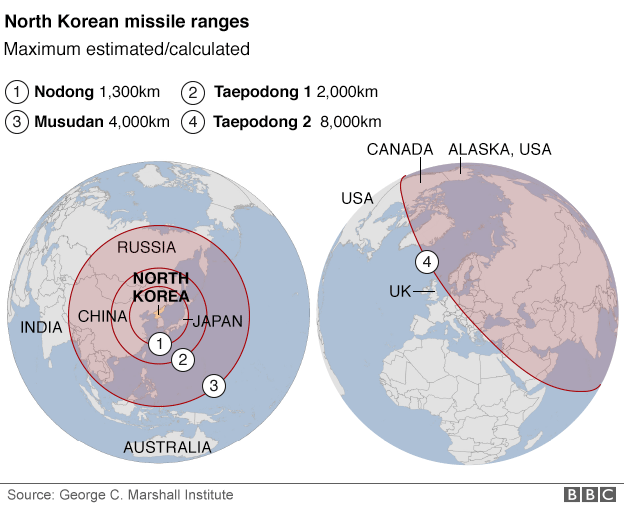
- Published28 April 2017
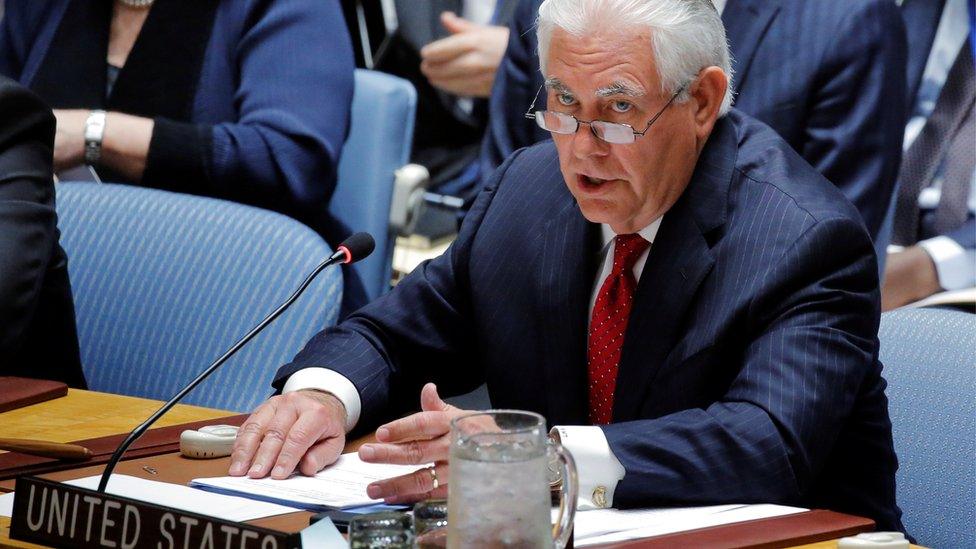
- Published28 April 2017
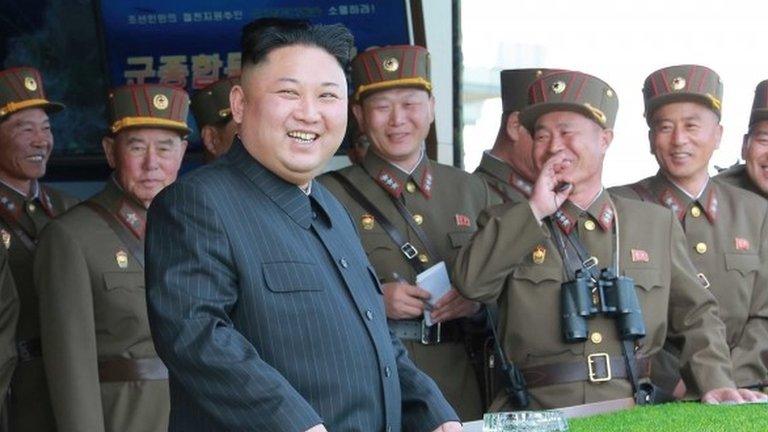
- Published27 April 2017
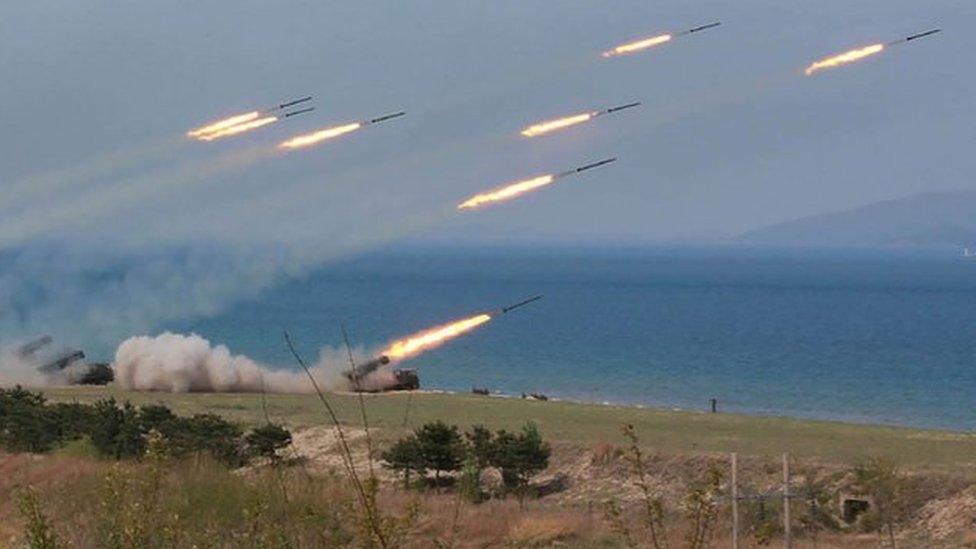
- Published21 April 2017
- Published10 August 2017
- Published4 July 2017
